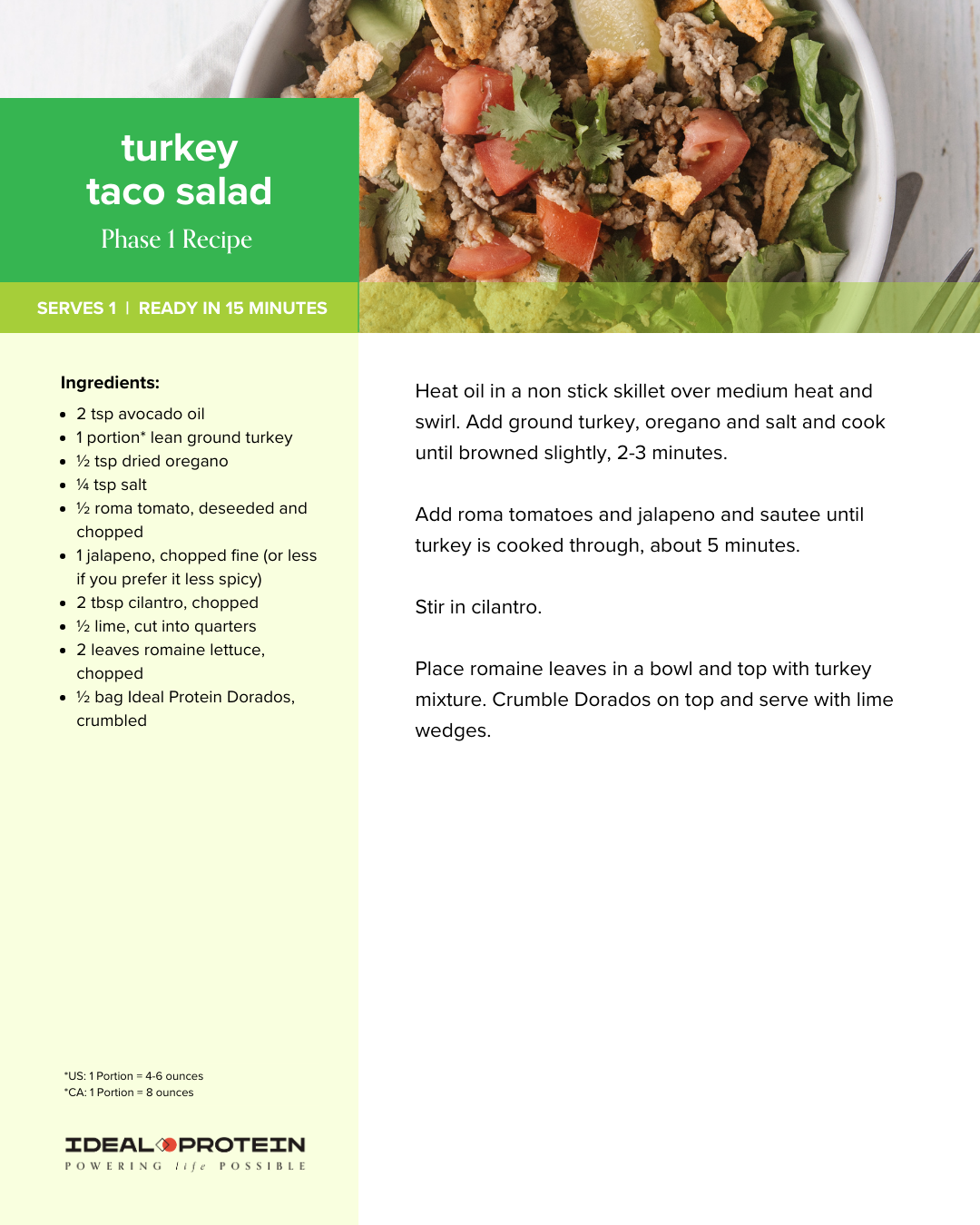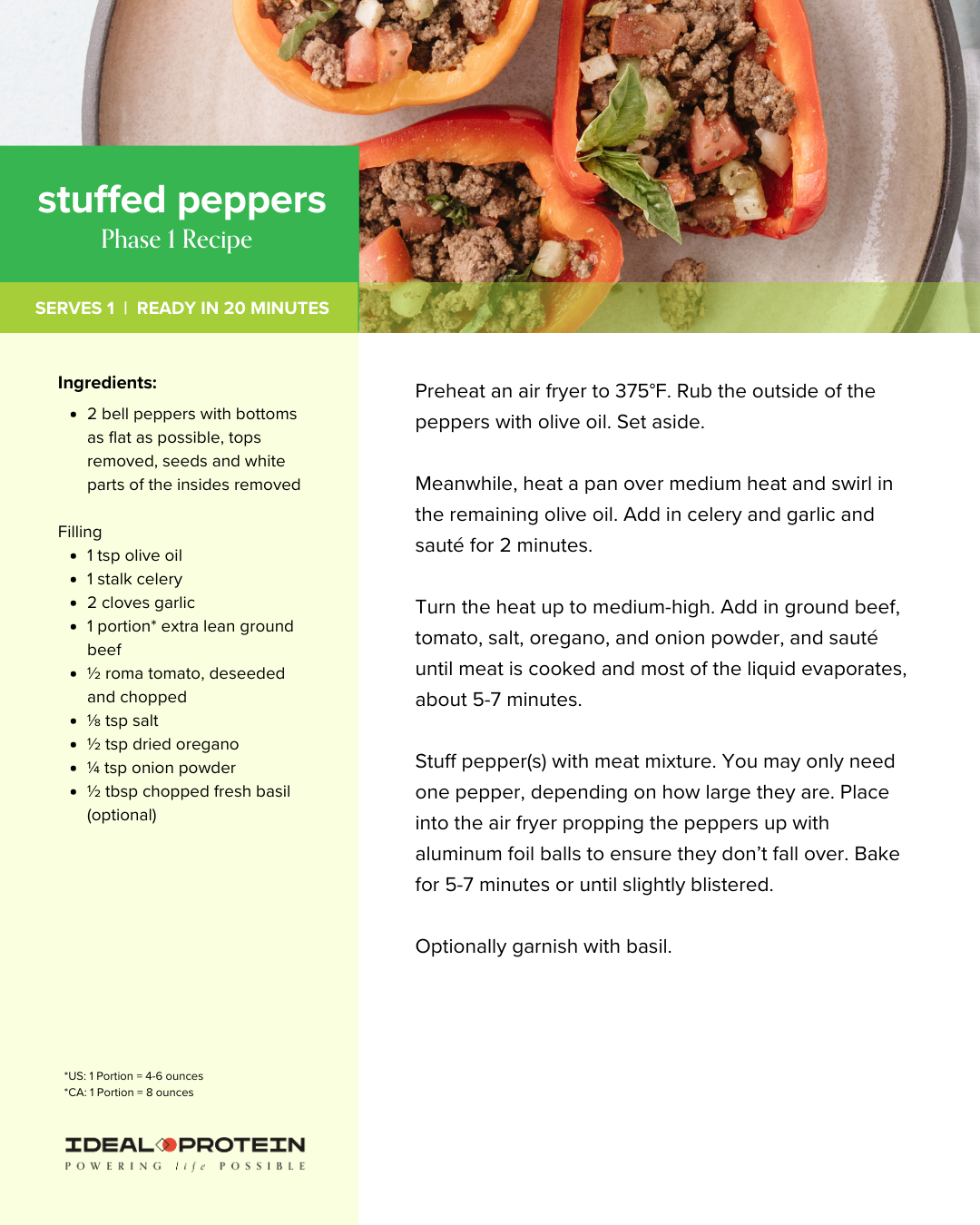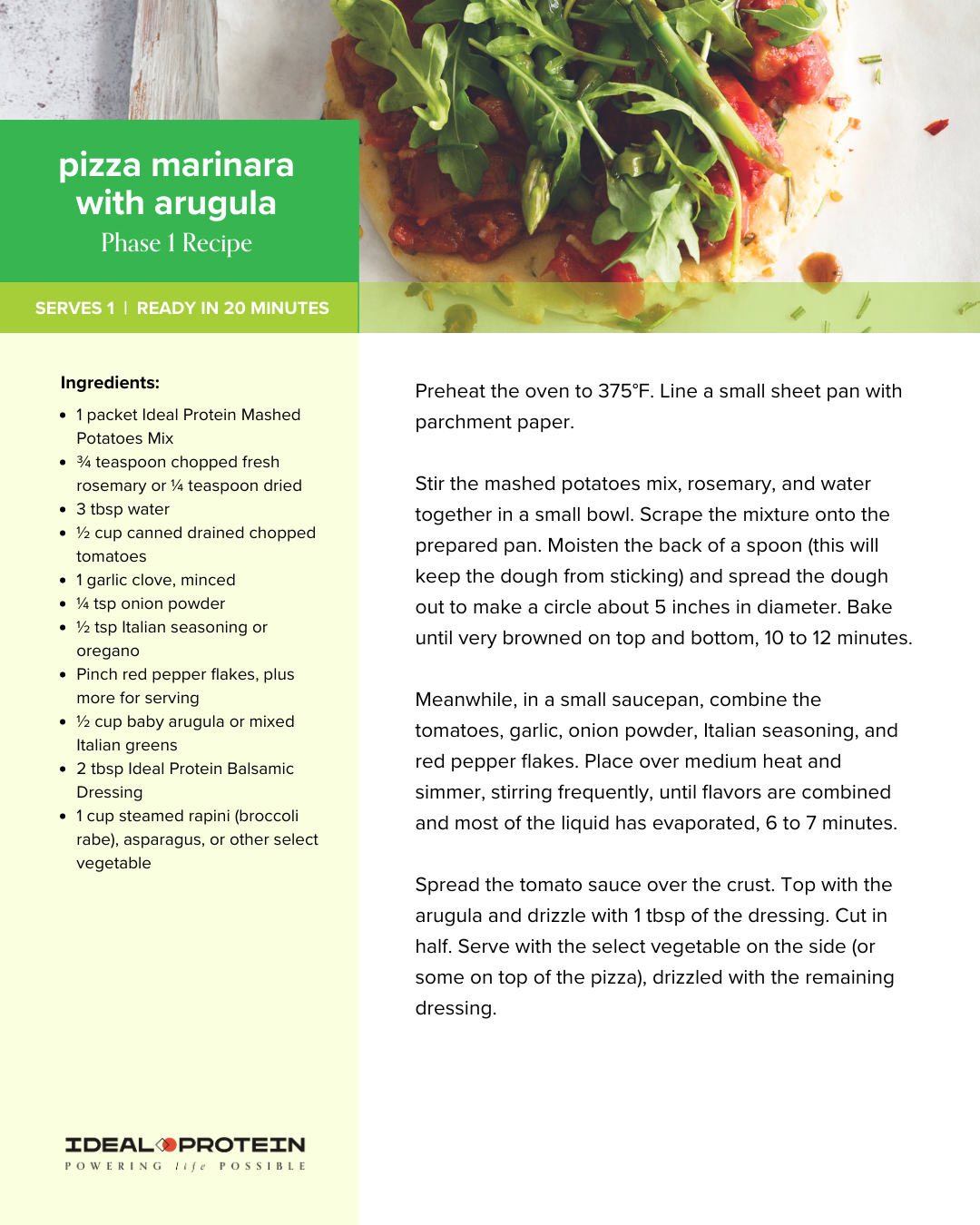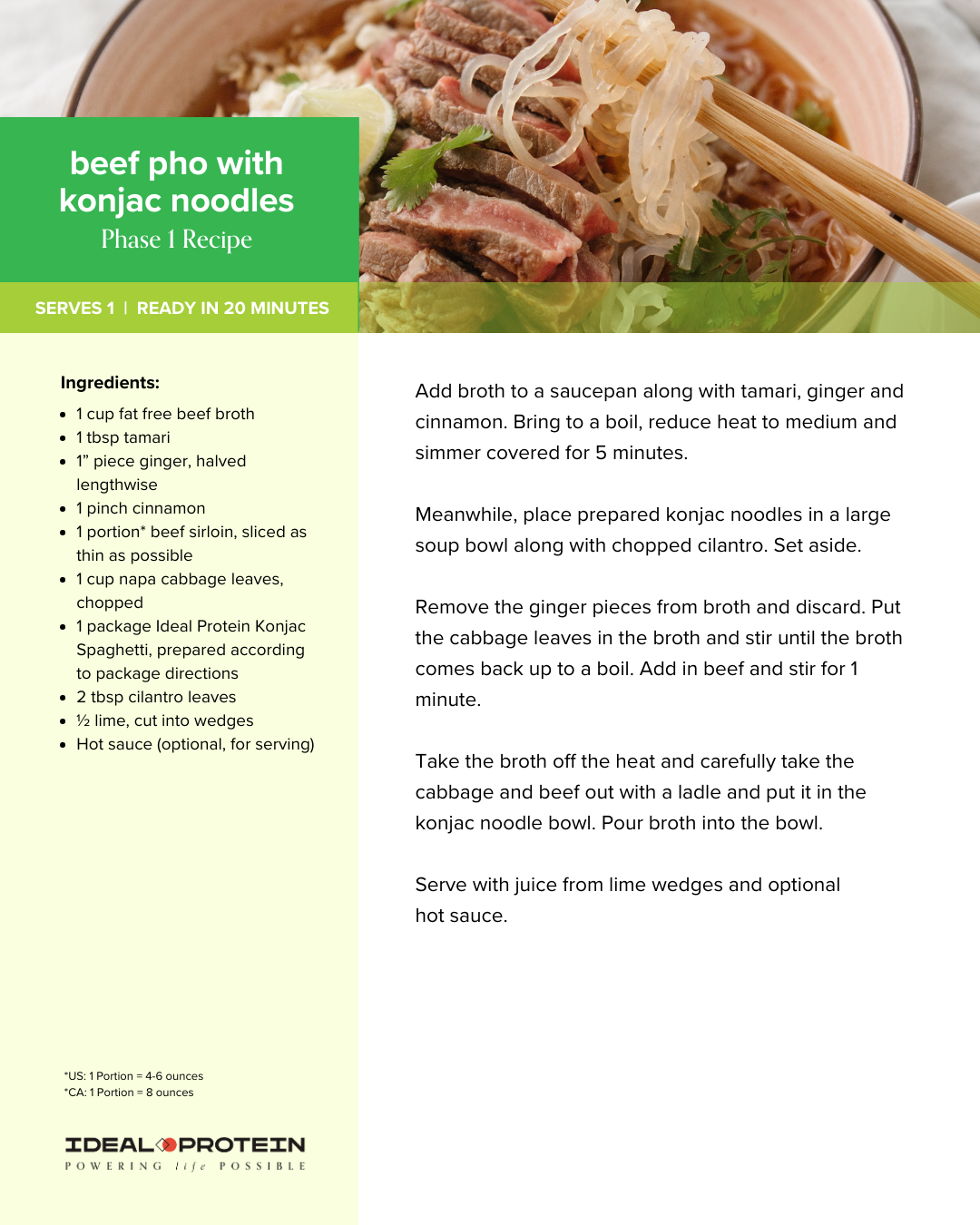Blog & Recipes to share

By Rachel Mathew
•
September 26, 2024
Embarking on a weight loss journey can transform not just your physique but also your overall energy levels. Understanding how weight loss impacts energy levels is crucial for anyone seeking sustainable health improvements. Whether you're dealing with hormonal weight gain, navigating weight loss in menopause, or managing weight loss for diabetes, the relationship between shedding pounds and feeling more energized is backed by science. In this blog, we delve into the scientific insights and practical strategies to optimize your energy through effective weight management. The Power of Weight Loss Science Losing excess weight can significantly influence your body's energy dynamics. According to a study published in the Journal of Clinical Endocrinology & Metabolism, weight loss leads to improved mitochondrial function, which enhances cellular energy production(1). This means that as you lose weight, your body becomes more efficient at converting food into usable energy, resulting in increased vitality and reduced fatigue. Diet Plans for Weight Loss: Fueling Your Energy A well-structured diet plan for weight loss is pivotal in boosting energy levels. Diets rich in whole foods, lean proteins, and complex carbohydrates provide sustained energy throughout the day. The Ideal Protein Diet, for example, emphasizes high-protein intake, which not only aids in fat loss but also helps maintain muscle mass and energy(2). For those living in the Surrey (South Surrey) and White Rock areas, Ideal Nutrition weight loss clinic offers personalized plans that cater to individual nutritional needs, ensuring you stay energized while losing weight. Managing Hormonal Weight Gain with Increased Energy Hormonal weight gain, particularly during periods like menopause, can drain your energy. Weight loss in menopause can help balance hormone levels, reducing symptoms like fatigue and mood swings. Research in the American Journal of Obstetrics and Gynecology highlights that weight reduction in menopausal women improves metabolic health and energy levels(3). Incorporating a weight management program tailored to hormonal changes can make a significant difference. Weight Loss for Diabetes: Enhancing Blood Sugar and Energy For individuals managing diabetes, weight loss plays a critical role in blood sugar management. A diabetic weight loss program focuses on reducing body fat, which enhances insulin sensitivity and stabilizes blood glucose levels. The Journal of the American Medical Association reports that medical weight loss interventions can lead to substantial improvements in glycemic control and increased energy(4). Programs like the ones offered at our clinic offer comprehensive support, including nutrition consultation and personalized blood sugar management programs. The Role of a Fat Loss Coach in Sustaining Higher Energy Engaging a fat loss coach, like one of our lovely coaches at Ideal Nutrition weight loss clinic, can provide the necessary guidance and accountability to maintain your energy levels during weight loss. Coaches help design customized weight management programs that align with your lifestyle and health goals. Studies have shown that personalized coaching significantly improves adherence to weight loss plans and enhances overall energy and well-being(5). Medical Weight Loss Clinics: Your Partner in Energy Optimization Visiting our clinic can connect you with experts who offer medical weight loss solutions tailored to your specific needs. Our clinic will provide access to nutrition consultation, supervised diet plans, and support systems that ensure safe and effective weight loss. By addressing underlying health issues and offering continuous support, medical weight loss clinics play a vital role in boosting your energy levels. Practical Tips to Boost Energy Through Weight Loss Balanced Nutrition : Incorporate a variety of nutrients through a diet plan for weight loss to ensure your body receives the fuel it needs. Regular Exercise : Engage in physical activities that complement your weight loss goals and enhance cardiovascular health. Hydration : Maintain adequate hydration to support metabolic processes and energy production. Adequate Sleep : Prioritize quality sleep to facilitate recovery and maintain high energy levels. Stress Management : Practice stress-reducing techniques like meditation or yoga to prevent energy drains. Conclusion: Energize Your Life with Effective Weight Loss Understanding how weight loss impacts energy levels empowers you to make informed decisions on your health journey. Whether you're tackling hormonal weight gain, managing diabetes, or seeking overall energy enhancement, a structured approach through medical weight loss, nutrition consultation, and personalized weight management programs can lead to lasting benefits. Ready to boost your energy and transform your life? Contact us and connect with an experienced fat loss coach to start your personalized weight loss for diabetes or general weight loss today. Embrace the science-backed path to a more energetic and healthier you! Give our clinic a call to schedule a FREE nutrition consultation with our professional nutritionists for weight loss. Whether you’re looking for weight loss in White Rock, South Surrey, Langley, Delta, Cloverdale, Vancouver, Burnaby, Coquitlam or beyond (hello virtual coaching), our team is here to help. References 1. Journal of Clinical Endocrinology & Metabolism - Impact of Weight Loss on Mitochondrial Function and Energy Metabolism. 2. Ideal Protein Diet Studies - Efficacy of High-Protein Diets in Weight Management. 3. American Journal of Obstetrics and Gynecology - Weight Loss and Hormonal Balance in Menopausal Women. 4. Journal of the American Medical Association (JAMA) - Medical Weight Loss Interventions and Glycemic Control. 5. Obesity Reviews - The Role of Coaching in Weight Loss and Energy Management.

By April Marasco
•
August 23, 2024
At Ideal Nutrition Weight Loss Clinic, we pride ourselves on offering the Ideal Protein Weight Loss Method—a scientifically-designed program that focuses on achieving and maintaining weight loss by targeting fat loss while preserving muscle mass. But with so many weight loss options available, how does Ideal Protein compare to other popular programs like Jenny Craig, Weight Watchers, and Dr. Bernstein? This blog post will break down the differences and benefits, helping you choose the best weight loss program for your goals. Who will win the battle of the bulges?

By April Marasco
•
July 27, 2024
Whether you’ve been contemplating starting your weightloss journey but don’t know where to start, OR you’re already losing weight but find yourself coming up against setbacks, you’re in the right place! Our coaches at Ideal Nutrition Weightloss Clinic in White Rock are here to help not only keep you motivated, but help guide you in your journey of losing weight, AND keeping it off as well! Ideal Protein is a huge helper in making this happen! We stand out from the weight loss competitors such as Jenny Craig and Weight Watchers as our goal is to get you away from the “fad” diet. You need to see this as a lifestyle change if you’re really ready to keep the weight off. With other calorie deficit diets the goal is to lose weight quickly. Unfortunately those tactics don’t help you in the long run. At our weight loss clinic, our goal as coaches is to help you get rid of the pesky body fat, maintain your muscle mass, and also train you on how to KEEP the weight off long term. Food and nutrition are important but, it’s the education and coaching that makes all the difference!! Starting a weight loss program can be challenging, and individuals may experience various objections or concerns that can act as barriers. Trust us when we say, we’ve heard it all. Your own health and wellness is often put on the backburner when in reality you should be putting yourself first. Resisting weight loss often stems from a combination of psychological, emotional, and social factors. Mentally, we create objections rooted in fear of failure, past disappointments, and a lack of self-trust. We might convince ourselves that we don't have enough time, that our goals are unattainable, or that the process will be too challenging to maintain. Emotional attachments to food and comfort eating further complicate our efforts, making it difficult to break old habits. Social pressures and fear of judgment from others can also undermine our motivation. Recognizing and addressing these mental barriers is crucial for achieving and sustaining weight loss and successfully following a sustainable weight loss program. For individuals dealing with Menopause Weight Gain, PCOS Weight Gain, or Hormonal Weight Gain, these mental obstacles can be even more pronounced, highlighting the importance of a supportive and tailored approach. Here are the four main struggles people may feel when beginning a weight loss program, and how you can work on it: If You Feel… Lack of Motivation: Someone might struggle with low motivation for weight loss due to a lack of visible progress, underlying emotional issues, or competing priorities and stressors in their daily life. Feeling demotivated or lacking the drive to make significant lifestyle changes is something that will halt your weight loss journey. TRY: Planning for your non-optimal self. Remember, sometimes you’ll be low on time, energy and enthusiasm. Prioritize consistency by setting your marks low enough that you won’t ever miss. Show UP instead of showing OFF. Another way to plan for your non-optimal self is to set up a support network around you for when you’re not feeling your best. Seek support from friends, family or an online support group to help boost motivation because you know you have a team around you. Additionally, our coaches are here to ensure your motivation stays at an all time high. We do weekly check-ins to ensure you’re feeling your best while on the Ideal Protein program! For those moments where you’re not… We are here too! If You… Fear Failure: Someone might struggle with fearing failure in weight loss due to past unsuccessful attempts, setting unrealistic goals, or feeling overwhelmed by the perceived difficulty of making lasting lifestyle changes. Worrying about not achieving desired results or relapsing into old habits is a common thing we hear from our clients. TRY: Don't set careless goals. If you’re worried that you won’t achieve your goals because your track record shows that you often set targets you don’t achieve, you start to lose trust in yourself (and that’s where the fear and doubts step in). Trust is built when people keep their promises. Over the repeated action of someone showing up the way they said they would, we build higher levels of trust with that individual. This is also true towards ourselves. If we keep making promises to ourselves (unfulfilled goals, habits, changes, intentions, etc) that we don’t follow through on, we start to lose that level of trust we have for our own word. Setting careless goals is not thinking through or being realistic about that thing you are trying to achieve. Additionally, understanding that setbacks are a normal part of the process can help overcome the fear of failure. We are here to cheer you on and when slip ups happen, remind you that it’s normal. No one is perfect. We will reassess the situation and start again! Our Ideal Protein coaches are not here to make you feel bad about the choices you’ve made, we are here to help guide you in the right direction no matter what. If You Feel… Social Pressures: Concerns about social situations, such as peer pressure to indulge in unhealthy food choices or feeling judged by others is more common than you may think. Our Ideal Protein Protocol is strict in the sense that what you eat is very important in your weight loss journey. Our first phase is a means to an end, so being strict for yourself and your goals is important. Pressure from your loved ones can make the weight loss process difficult, and longer than it needs to be. Especially if they are not supporting you. TRY: Communicating goals to friends and family and finding alternative ways to socialize that align with healthy choices can help navigate social pressure. Be open, honest and you’ll quickly see who truly wants you to thrive. Try suggesting a walk in the park, going to the shopping mall, grabbing a coffee or tea, visiting a local attraction (such as a museum, aquarium, art galleries, the zoo) or engage in a fun activity (such as bowling, mini golf, etc). If You Feel… Time Constraints: Something we often hear is that there are not enough hours in a day to get everything done… Believe us, we are right there with you! It’s a common problem most of us face in our day to day lives. Feeling that there's not enough time to incorporate healthy habits into a busy schedule is something everyone faces, which often leads to us putting our own health and wellness last. TRY: Prioritizing time management, planning meals in advance, and making it seem FUN can help overcome time constraints. There is always more time than you think but sometimes we do have to shift things around! Think about, who could you ask for help? Can you delegate or postpone some of the things on your plate? Try keeping a time journal to see how you’re actually spending your time. We often have time to spare but we can’t find it in the day-to-day, often getting lost in screen time and scrolling online. These are just SOME of the common objections and concerns that we are more than happy to chat through with you. Addressing these struggles can help individuals overcome barriers and establish a sustainable and successful weight loss program. Additionally, seeking professional guidance and support can contribute to a more positive and effective journey towards weight management. Our Virtual Weight Loss Program is designed to offer the same level of support and guidance as our in-person sessions, making it accessible no matter where you are. For those dealing with specific conditions like Weight Loss in Menopause, Menopause Weight Gain, PCOS Weight Gain, or Poly-Cystic Ovarian Syndrome Weight Gain, our coaches are experienced in tailoring plans that address hormonal weight gain. Here at Ideal Weight Loss Clinic in White Rock, we are here to help you not only learn how to combat your sugar cravings… We are here to help you make a lifestyle change you can be proud of and actually achieve! We are a weight management clinic that helps you get to your weightloss goal, coach and help with a meal plan and pass along the knowledge you need to succeed. With our weight loss coaches and Ideal Protein diet, weight loss AND weight management can be achieved! Give our clinic a call to schedule a FREE nutrition consultation with our professional nutritionists for weight loss. Whether you’re looking for weight loss in White Rock, Surrey, Langley, Vancouver, Burnaby or beyond (hello virtual coaching), our team is here to help.

By Rachel Mathew
•
July 13, 2024
As I sit down to write this, I'm reminded of the pivotal moment that changed my life. This moment led me to where I am today – working as a Registered Nutritionist and helping others achieve their weight loss and health goals with a tried and true comprehensive weight management program (hello Ideal Protein)! If you're looking for the 5 action tips - scroll to the bottom to skip right to it! My journey into the world of nutrition began out of sheer necessity. I was experiencing unexplained weight gain and persistent acne, which was frustrating and affecting my confidence. After much hesitation, I finally decided to see a doctor, hoping to get some answers and relief. What I got instead was a diagnosis that left me with more questions than solutions: Polycystic Ovary Syndrome (PCOS). I remember the appointment vividly. The doctor was rather unempathetic and dismissive, brushing off my concerns with a quick prescription for Metformin, a medication typically used for diabetes. It felt like a one-size-fits-all solution to a complex problem. There was no discussion about lifestyle changes, diet plan for weight loss, or any other possible interventions. Just a prescription and a sense that I would have to rely on this medication for the rest of my life. But something inside me refused to accept that Metformin was my only option. I left the doctor's office feeling determined to find a better way to manage my PCOS and improve my health. This determination led me to dive deep into research, which sparked my interest in the field of nutrition. I soon realized the profound impact that food and lifestyle choices can have on our health, especially for those dealing with hormonal weight gain . Being diagnosed with PCOS felt like a suffocating life sentence for me, because instead of addressing the root causes for my condition, I was given a band aid and no added knowledge on how to cure, let alone manage my symptoms. I was dismissed as one among the countless cases of PCOS that was cropping up in women. My innate stubbornness and gut instinct led me to make the decision to formally educate myself to prove the system wrong and to figure my body out and tap into its natural healing power. Thoroughly unsatisfied, I pursued a degree in nutrition to understand how to manage PCOS naturally through diet. While these efforts helped me make some great progress, they weren’t enough to bring about a significant, lasting change. That’s when I discovered the Ideal Protein protocol. Unlike my previous attempts, Ideal Protein offered a structured and science-based approach that delivered consistent results. Week by week, I saw fat loss, improved blood work, and a transformation in my body and eating habits that felt permanent. Choosing Ideal Protein over other diets like Bernstein, Weight Watchers, and Jenny Craig was an easy decision for me. Unlike the Bernstein diet, which can be very restrictive and hard to maintain, Ideal Protein provided a balanced approach that didn’t leave me feeling deprived. Compared to Weight Watchers, which focuses on a points system that can be confusing and encourages moderation rather than addressing specific health issues, Ideal Protein’s structured phases offered clear guidance and targeted fat loss. Unlike Jenny Craig, which relies heavily on pre-packaged meals, Ideal Protein educated me on making healthier food choices, empowering me to sustain my new lifestyle independently. This comprehensive and empowering approach is why Ideal Protein stands head and shoulders above the rest. I learned to balance my meals with nutrient-dense foods, focus ing on low-glycemic index carbohydrates, lean proteins, and healthy fats. I incorporated supplements that supported my hormonal balance and overall well-being. Regular exercise became a cornerstone of my routine, not just for weight management but for its positive effects on insulin sensitivity and stress reduction. This approach is also crucial for weight loss in menopause and for those seeking a diabetic weight loss program . Gradually, I saw a transformation in my body and my health. My weight stabilized, my skin cleared up, and my energy levels soared. More importantly, I felt empowered knowing that I had taken control of my health through natural means! Giving back the power to nature and my body’s natural defense mechanisms allowed healing at the deepest level instead of just applying a band-aid to a litany of symptoms. Today, as a Registered Nutritionist, I am passionate about helping others take control of their health. Through sharing this knowledge with others who may be facing similar struggles, I can help others advocate for themselves better. At our weight loss clinic in White Rock, British Columbia, we believe in a holistic approach to health. We understand that each person’s journey is unique, and we are here to provide personalized support and guidance, whether through our blood sugar management program, the Ideal Protein diet, and our medical weight loss services. If you’re dealing with weight gain, PCOS, or any other health challenge, I want you to know that there are options beyond medication. With the right diet, supplements, lifestyle changes, and most importantly the guidance and accountability provided by an experienced and compassionate fat loss coach, you can take control of your health just as I did! It’s a journey with a lot of hills and valleys, but one worth taking especially when you don’t feel alone while on it. I can personally attest that it was life-changing for me making those changes and I feel excited about helping others achieve their full potential and see for themselves how far they can soar. Through struggles with multiple doctors, we know the challenge of advocating for yourself can feel overwhelming so grab these tips that help make advocating for yourself easier! 1. Educate Yourself Research your symptoms, diagnosis, and treatment options using reliable sources. Know your patient rights and healthcare policies. 2. Communicate Effectively Clearly describe your symptoms and concerns. Ask questions and express your treatment preferences. 3. Stay Organized Maintain a personal health record with medical history, medications, and test results. Document everything during appointments and request written summaries. 4. Seek Support Bring a trusted friend or family member to appointments for support. Join support groups for advice and encouragement. 5. Be Proactive If needed, seek a second opinion to validate diagnoses and treatment plans. Speak up if your concerns are not being addressed and escalate if necessary. Advocating for yourself in the medical world is crucial because it ensures you receive appropriate, personalized care. By actively participating in your healthcare, you can make informed decisions, communicate your needs clearly, and address any concerns promptly. This can lead to better health outcomes, increased satisfaction with your care, and a greater sense of control over your health. Failing to advocate for yourself might have serious consequences. Misunderstandings or overlooked symptoms may result in misdiagnosis or delayed treatment, potentially worsening your condition. Without self-advocacy, you may not receive the most effective or appropriate treatments, and your concerns might be dismissed or ignored, leading to inadequate care. Therefore, self-advocacy is essential for ensuring your health and well-being. If you’re looking for a weight loss clinic near you that’s different from the rest and genuinely cares to see you succeed, our team is here to get you started on your journey and support you always! With lots of love and positivity, this is coach Rachel signing off until next time!

By April Marasco
•
May 25, 2024
In the ever-evolving landscape of weight loss solutions, there’s always a new kid on the block promising miraculous results. Recently, a buzz has been circulating around a medication called Ozempic, also known by its other aliases, Wegovy and Mounjaro. But what exactly is Ozempic, and does it live up to the hype? Let’s dive in and explore how Ozempic can be used in combination with the Ideal Protein Protocol for a lasting lifestyle change, especially for those looking for a sustainable diet plan for weight loss. How Does Ozempic Work? Ozempic works its magic by targeting the brain’s appetite control center, helping to reduce feelings of hunger and increase feelings of fullness. Additionally, it slows down the emptying of the stomach, which can help regulate food intake and promote weight loss. This dual-action mechanism not only helps reduce calorie intake but also improves satiety, making it easier to stick to a reduced-calorie diet without feeling deprived. This can be particularly beneficial for those dealing with hormonal weight gain and weight loss in menopause. Ozempic belongs to a class of medications called GLP-1 receptor agonists. Originally approved to treat type 2 diabetes, it’s now making waves in the medical weight loss world. This injectable medication works by mimicking the effects of a naturally occurring hormone called GLP-1, which helps regulate blood sugar levels and appetite. It’s typically administered once a week, making it a convenient option for those who struggle with daily medication routines, especially those in a diabetic weight loss program or seeking weight loss for diabetes. We also covered the effects of Ozempic in detail in our last blog post so we won’t bore you with too much repeated info - you can read that detailed post HERE . Integrating Ozempic with the Ideal Protein Protocol Combining Ozempic with the Ideal Protein Protocol can offer a powerful strategy for sustainable weight loss and be a long-term weight management program with accountability. The Ideal Protein Protocol is a medically developed ketogenic weight loss program that emphasizes high-quality protein, low carbohydrates, and healthy fats to promote fat loss while preserving lean muscle mass. If you're searching for an ideal protein diet or weight management program, this combination could be the solution. How the Combination Works Enhanced Appetite Control How: Ozempic’s appetite-suppressing effects complement the Ideal Protein Protocol’s focus on balanced, protein-rich meals, making it easier to adhere to the diet plan for weight loss. By targeting the brain's hunger signals, Ozempic reduces the urge to snack or overeat. When combined with the high-protein, low-carb meals from the Ideal Protein Protocol, which naturally promote satiety, users experience a significant reduction in cravings and overall hunger. Why: Reducing hunger and increasing feelings of fullness help prevent overeating and support long-term adherence to the dietary regimen. This synergy between medication and the diet plan at our weight loss clinic can lead to more consistent and sustainable weight loss, addressing both physiological and behavioral aspects of eating. For those considering weight loss in menopause or dealing with hormonal weight gain, this can be especially effective. Improved Metabolic Health How: Both Ozempic and the Ideal Protein Protocol improve metabolic markers such as blood sugar and insulin levels. Ozempic enhances insulin sensitivity and lowers blood glucose levels, which is particularly beneficial for individuals with or at risk of type 2 diabetes. The Ideal Protein Protocol, with its focus on reducing carbohydrate intake, further stabilizes blood sugar levels, promoting a more balanced metabolic state and weight loss for diabetes. Why: Better metabolic health enhances overall well-being and reduces the risk of chronic diseases, providing a comprehensive approach to weight loss and health improvement. This combination not only aids in weight loss but also contributes to reducing the risks associated with metabolic syndrome, cardiovascular diseases, and other obesity-related conditions. This makes it a crucial part of a blood sugar management program and weight loss clinic's offerings. Preservation of Lean Muscle Mass How: The Ideal Protein Protocol emphasizes high-quality protein intake, which helps preserve lean muscle mass during weight loss. Protein is essential for muscle repair and growth, and maintaining muscle mass is crucial for sustaining a healthy metabolism. Ozempic helps by reducing overall caloric intake and promoting fat loss, but the diet's focus on protein ensures that muscle mass is not sacrificed in the process. Why: Preserving muscle mass is important for maintaining metabolic rate and functional strength. Muscle burns more calories at rest compared to fat, so maintaining muscle mass can help prevent the metabolic slowdown that often accompanies yo-yo weight loss, making it easier to keep the weight off long-term. Structured Meal Plans How: The Ideal Protein medical weight loss protocol offers a structured meal plan with specific guidelines on food choices and portion sizes, which can be easily followed while using Ozempic. These meal plans include a variety of pre-packaged meals, supplements, and recipes that are designed to simplify the process of healthy eating. This structure removes the guesswork from meal preparation and helps users stay consistent with their dietary choices. Why: Structured meal plans eliminate guesswork, making it simpler to stick to the diet and achieve consistent weight loss results. Having a clear and detailed plan ensures that individuals are consuming the right nutrients in the right proportions, which supports the weight loss process and helps maintain lean muscle mass. Those looking for an ideal protein diet or a weight loss clinic near me will find this approach highly beneficial. Continuous Support and Monitoring How: Regular consultations with a healthcare provider and weight loss coach ensure that the combination of Ozempic and the Ideal Protein Protocol is tailored to individual needs and progress is closely monitored. These sessions with a fat loss coach provide personalized advice, address any challenges, and make necessary adjustments to the plan. Continuous support also includes access to educational resources and motivational tools that keep users engaged. Why: Ongoing support and adjustments help maintain motivation, address any issues promptly, and optimize the weight loss journey for each individual. Personalized guidance and accountability can significantly enhance adherence to the program, making it easier to overcome obstacles and sustain long-term weight loss success. Whether you need a fat loss coach, a weight loss nutritionist, or an Ideal Protein coach, the support network is crucial. The Importance of Lifestyle Changes While Ozempic can kickstart weight loss, sustainable success relies on comprehensive lifestyle changes. The Ideal Protein Protocol emphasizes the importance of dietary habits, regular physical activity, and continuous support. Together, Ozempic and the Ideal Protein Protocol provide a robust framework for achieving and maintaining weight loss, which can be further supported by weekly 1:1 coaching from our fat loss coaches at the Ideal Nutrition Weight Loss clinic. Conclusion Ozempic, when combined with the Ideal Protein Protocol, offers a promising approach for individuals struggling with obesity. This combination not only aids in weight loss but also supports long-term health improvements. If you’re considering Ozempic and the Ideal Protein Protocol as part of your weight loss journey, be sure to have an open and honest conversation with your healthcare provider to determine if this combination is right for you. Here at Ideal Weight Loss Clinic in White Rock, we are here to help you not only learn how to combat your hormonal cravings, diabetes management, and menopausal weight gain… We are here to help you make a lifestyle change you can be proud of and actually achieve! We are a weight management clinic (facilitating the Ideal Protein Diet) that helps you get to your weightloss goal! Get coached with a meal plan so you have the structure and knowledge you need to succeed. With our weight loss coaches and Ideal Protein diet, weight loss AND weight management can be achieved! Give our clinic a call to schedule a FREE nutrition consultation with our professional nutritionists for weight loss. Whether you’re looking for weight loss in White Rock, Surrey, Langley, Vancouver, Burnaby, C oquitlam or beyond (hello virtual coaching), our team is here to help.
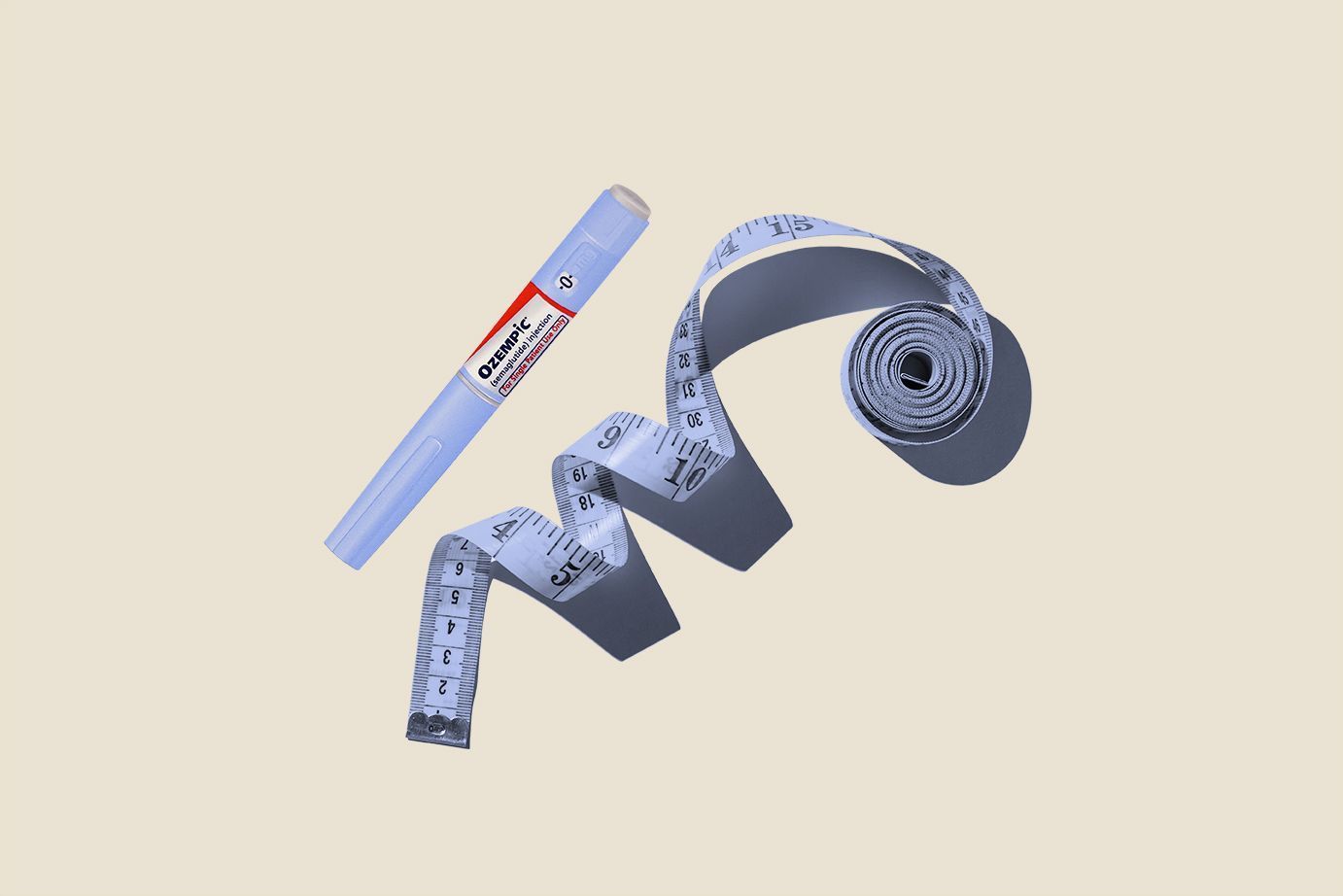
By April Marasco
•
May 3, 2024
In the quest for weight loss in menopause, weight loss for diabetes, reducing hormonal weight gain or simply looking to lose some fat, many individuals turn to pharmaceutical aids like Ozempic and other GLP Agonists. While these drugs promise quick results, it's essential to understand their limitations and potential risks, especially when compared to safer but slower alternatives. At Ideal Nutrition Weight Loss Clinic our fat loss coaches teach the Ideal Protein Protocol, and we advocate for holistic, yet medically backed approaches that prioritize sustainable lifestyle changes over quick fixes, and here's why: How Does Ozempic and GLP Agonists Work? I bet you’ve searched for the best diet plan for weight loss and maybe somewhere in your searches you’ve come across weight loss drugs. Ozempic (a type of semaglutide which is just medical speak for a type of drug) and other GLP Agonists belong to a class of medications primarily used to treat type 2 diabetes. They work by acting like a hormone called GLP-1, which helps control blood sugar by increasing insulin and reducing glucagon, as well as slowing down how fast your stomach empties. These drugs can also cause weight loss, so they're sometimes used to help with obesity, even though they're not officially approved for that purpose. Weight Loss… But At What Cost? While the prospect of fast weight loss may seem appealing, it's crucial to recognize the drawbacks of relying solely on pharmaceutical interventions for weight loss. Research has shown that extreme weight loss, such as that induced by Ozempic, GLP Agonists or other weight loss drugs, can lead to the loss of substantial lean muscle mass along with the fat mass. This might actually be doing more harm than good on the inside because our lean muscle mass is the organ that helps us keep our weight off long-term! In a study published in the Journal of Clinical Endocrinology & Metabolism, researchers found that individuals treated with GLP-1 receptor agonists, such as Ozempic, experienced a notable reduction in lean body mass compared to those who did not receive the medication. Lean body mass includes muscles, bones, organs, and other non-fat tissues in the body. Losing muscle mass can have detrimental effects on metabolism because muscles are metabolically active tissues that burn calories even when you're at rest. Muscle loss from GLP-1 receptor agonists can slow down your metabolism, making it harder to maintain weight loss over time. This is because a lower muscle mass means your body burns fewer calories, making it easier to regain lost weight. Additionally, maintaining muscle mass is important for overall health and function. Reduced muscle mass can lead to decreased strength, mobility, and increased risk of injury. It's important to note that while GLP-1 receptor agonists can be effective for weight loss, they may also cause muscle loss as a side effect. This highlights the importance of combining medication with other strategies such as exercise and strength training to preserve muscle mass and support long-term weight management. Working with a weight management program or medical weight loss clinic can provide guidance on incorporating these strategies into your lifestyle for optimal results. Maintaining Weight Loss After Taking Ozempic: While Ozempic and GLP Agonists may offer initial weight loss benefits, they do not address the underlying behaviors and habits that contribute to weight gain in the first place. Without addressing these root causes, individuals may struggle to maintain their weight loss over time and may be at risk for regaining lost weight faster once they discontinue the medication. In contrast, adopting a comprehensive approach to faster weight loss (like the Ideal Protein Diet) that includes personalized coaching and support, can empower individuals to make lasting changes that promote long-term success. By focusing on building confidence through healthy habits and getting educated about nutrition, our local weight loss clinic aims to help clients achieve their health goals in a way that prioritizes their overall well-being. Here are some key strategies to help you keep the weight off even after stopping the medication: 1. Focus on Building Muscle: After discontinuing Ozempic, it's essential to focus on building and maintaining muscle mass. Resistance training exercises such as weightlifting or bodyweight exercises can help preserve lean muscle tissue and prevent the loss of metabolism-boosting muscle mass. Muscle tissue is metabolically active, meaning it burns more calories at rest compared to fat tissue. By incorporating strength training into your routine, you can increase your resting metabolic rate, making it easier to maintain weight loss. Consider working with a fat loss coach to develop a personalized diet plan for weight loss and muscle maintenance. 2. Adopt a Balanced Diet: Transition to a balanced, nutrient-dense diet that includes plenty of fruits, vegetables, lean proteins, and whole grains. Avoid restrictive diets or extreme calorie-cutting, as these can lead to rebound weight gain. This approach is especially important for individuals dealing with hormonal weight gain or weight loss in menopause. A balanced diet provides essential nutrients that support overall health and metabolism. For those struggling with hormonal weight gain or weight loss in menopause, a personalized diet plan for weight loss that focuses on hormone balance may be beneficial. Working with a certified dietitian, nutritionist or weight loss coach can help you develop a plan that meets your unique needs. 3. Practice Mindful Eating: Pay attention to your body's hunger and fullness cues, and eat slowly to give your brain time to register feelings of satisfaction. Avoid emotional or stress eating by finding alternative ways to cope with negative emotions. This approach is also beneficial for individuals participating in a diabetic weight loss program or blood sugar management program. Mindful eating helps you develop a healthier relationship with food and prevents overeating. By tuning into your body's signals, you can better regulate your food intake and avoid mindless snacking or binge eating. This is particularly important for individuals with diabetes, as blood sugar management is crucial for overall health. 4. Stay Active: Continue to incorporate regular physical activity into your routine, aiming for at least 150 minutes of moderate-intensity exercise per week. Find activities you enjoy and make them a regular part of your lifestyle. Working with a fat loss coach can help you design an exercise program that supports your weight loss goals. Exercise not only burns calories but also helps maintain weight loss by preventing metabolic slowdown and promoting overall well-being. It's an essential component of any weight loss program, especially for individuals with diabetes or those participating in a diabetic weight loss program. Regular physical activity can improve blood sugar management and reduce the risk of complications associated with diabetes. 5. Monitor Your Progress: Keep track of your weight, food intake, and physical activity to stay accountable and identify any potential areas for improvement. Regular self-monitoring can help you catch and address any weight regain early on. Monitoring your progress allows you to identify patterns and make adjustments as needed to maintain your weight loss success. It's a valuable tool for staying on track and preventing relapse, especially for individuals participating in a blood sugar management program or diabetic weight loss program. Maintaining weight loss after taking Ozempic (or any weight loss drugs) requires a commitment to healthy habits and lifestyle changes. By focusing on building muscle, adopting a balanced diet, practicing mindful eating, staying active, and monitoring your progress, you can keep the weight off and enjoy long-term success in your weight loss journey. Our Ideal Protein Program focuses on a sustainable approach that maintains muscle mass and burns fat. Plus our health coaches meet weekly with clients to ensure their muscle mass is safe, they are in an optimal fat burn and to guide them through the weight loss journey mentally. Whether you’re dealing with hormonal weight gain (from PCOS (Polycystic Ovary Syndrome), Diabetes, imbalanced blood sugars, emotional eating, self-sabotage, or just ready to make a serious change to your lifestyle - personalized coaching and tailored medical weight loss protocols can be particularly beneficial. Research has shown that lifestyle modifications, including dietary changes and increased physical activity, are effective in managing symptoms of PCOS, Diabetes or blood sugar imbalance and promoting weight loss. In Conclusion While pharmaceutical aids like Ozempic and GLP Agonists may offer a quick fix for weight loss, they come with potential risks and limitations, including the loss of lean muscle mass. At Ideal Nutrition Weight Loss Clinic, we advocate for safer, more sustainable alternatives that prioritize holistic health and long-term maintenance. By focusing on personalized coaching, ideal nutrition, and lifestyle modifications, we empower our clients to achieve their weight loss goals in a way that supports their overall well-being for years to come. Here at Ideal Weight Loss Clinic in White Rock, we are here to help you not only learn how to combat your hormonal cravings, diabetes management, and menopausal weight gain,… We are here to help you make a lifestyle change you can be proud of and actually achieve! We are a weight management clinic (facilitating the Ideal Protein Diet) that helps you get to your weightloss goals! Get coached with a meal plan so you have the structure and knowledge you need to succeed. With our weight loss coaches and Ideal Protein diet, weight loss AND weight management can be achieved! Give our clinic a call to schedule a FREE nutrition consultation with our professional nutritionists for weight loss. Whether you’re looking for weight loss in White Rock, Surrey, Langley, Vancouver, Burnaby, Coquitlam or beyond (hello virtual coaching), our team is here to help.

By April Marasco
•
March 22, 2024
In the journey toward optimal health and wellness, setbacks are not roadblocks but rather detours on the path to weight loss success. Diet plans for weight loss (like the Ideal Protein Program) provide us with invaluable lessons and opportunities for growth. Whether it's hormonal weight gain, menopause, blood sugar imbalances, a lapse in our exercise routine, a slip in our dietary habits, or unexpected health challenges, on the road to weight loss success setbacks are inevitable. However, it's how we respond to these setbacks that truly defines our progress. Imagine working with a work weight loss coach, professional nutritionist or weight loss doctor to implement a specific weight management program at a local weight loss clinic where you get to work on behaviour change for sustainable weight loss (or virtual weight loss coaching!) and do an enjoyable weight loss program with a coach. In this blog post, we delve into the art of crafting a strategic comeback plan, empowering you to navigate setbacks with resilience, grace, and determination on your quest for a healthier, happier life. When it comes to losing weight safely and quickly, setbacks can feel particularly disheartening. Whether it's hitting a plateau, succumbing to temptation, or facing unexpected obstacles, weight loss setbacks can derail progress and leave us feeling frustrated and defeated. Blood sugar and hormonal imbalances (and more!) may affect weight gain, mood and appetite that have absolutely nothing to do with willpower! Our weight loss coaches often get questions about how to achieve weight loss in menopause, diabetic weight loss programs, and if our program will address these hormonal weight gains. The quick answer is YES! Our keto weight loss program will generally work on your menopause weight gain, PCOS weight gain, Diabetes weight management, blood sugar management, and more! However, it's essential to recognize that setbacks are a natural part of the process and do not define our ultimate success on the path to successful weight reduction. By adopting a strategic approach to overcoming setbacks and receiving weight loss coaching that works long term, we can regain momentum, refocus our efforts, and ultimately achieve our weight loss goals. In the following sections, we'll explore actionable strategies to bounce back from weight loss setbacks, empowering you to stay committed to your health and wellness journey. If you… Have regained some weight: Plan ahead for this possibility. You might want to decide, with the guidance of your weight loss coach, what your “take action” weight will be and the steps you’ll take if you hit that number on your scale. Try reducing your carbs for a select period of time to see if that helps curb the sugar addiction. Maybe a Tune-up–returning to Phase 1 of the Ideal Protein Protocol – will do the trick. Above all, don’t be hard on yourself; weight gain is ordinary and common—but not permanent. Are returning to old eating patterns: This might happen for a few reasons. Stress and life events may have taken top priority but refocusing on how good you feel when taking care of yourself! For instance, you haven’t been using your IP app or Daily Planner & Journal every day. Has sugar addiction crept back in? Or you’re less careful about checking labels and adhering to your Macro Code. Maybe you’ve ventured too often into the Poor Value food category. Go through your food-related handouts for Phase 3 to refresh y our knowledge of label claims, Ideal Value meals, using your Macro Code, and so on. At our weight loss clinic, you can always book random check in’s with your Ideal Protein coach when you feel life circumstances have changed so a coach can help you identify challenges and create a custom plan with strategies to navigate your new lifestyle. Find your motivation has stalled: Pretend you’re the Ideal Protein weight loss coach - remind yourself of what you’ve gained as you’ve lost: more stamina, less stress, greater confidence, better sleep, behaviour change, etc. Then revisit your goals. Even if you updated them when you entered Maintenance, it’s possible one or two weren’t quite right, or no longer resonate for you, so revise as necessary. Visualize yourself at a healthy weight, imagine what it will feel like , what outfits you will wear and what kinds of foods you will be eating once you’re there. Find your old, favorite outfit that no longer fits you and put it out. Leave it out as a reminder to keep you going to be able to wear it once again. Imagine it fitting perfectly and what you will be feeling in that moment. Our fat loss coaches love to remind that, to successfully maintain weight loss, choose intrinsic, or personally meaningful, goals that aren’t based on physical appearance. Ask us for the 5 tips to tackle a weight loss OR weight management setback!

By Parth Ads
•
February 1, 2024
Eating out at restaurants isn’t only used to help quench a craving or two, but often looked at as something social. Who doesn’t love getting together with loved ones to spend quality time together?! We know we do… While on the Ideal Protein program with our White Rock weight loss coaches, you’ll potentially have to stray away from your restaurant “go-tos”; however you may be shocked to know you’re not totally banned from enjoying restaurants while on our medical weight loss program. Eating food shouldn’t cause guilt. Our weight loss coaches came up with a list of restaurants you can still enjoy, with the foods you’re able to indulge in. - All while still focusing on your lifestyle change and a diet plan for weight loss! A&W: Teen Burger: Both patties are 3oz of protein which means when you double up you’ll be hitting your 6oz of your daily meat protein. Changes to make: Ask for a lettuce burger without mayo or cheese. Cactus Club: Raincoast Greens: All you have to remove is the feta and pecans and you’ll be set! The Med Bowl: Ask for no rice, feta or yogurt. You can replace those items with olive oil and lemon for dressing, and add extra veggies to replace the rice. Crispy Tofu Bowl: Ask for plain tofu instead of crispy & remove the rice and mango. For a sauce, ask for either Olive Oil and lemon on the side, soy sauce or hot sauce! Original Joe’s: California Cobb: Cheddar, bacon, avocado and the dressing are to be removed and replaced with an olive oil vinaigrette dressing and you’re set! Sushi: This one you may feel a bit restricted if you’re not a fan of sashimi, however if you love it, sushi will be perfect for you! You’re even allowed a daily dose of soy sauce! Don’t forget you’re allowed radishes, so the daikon radish they served with sashimi can be apart of your meal too. Chinese Food: Steamed Veggies: You can ask for them to be steamed in garlic then add your own soy sauce Beef & Broccoli: When ordering this, ask for no sauce or sauce on the side as it’s not allowed. You’re able to add soy sauce or chili oil to make it a delicious, on program meal! Subway: Did you know at Subway you can make your own salads!? Remember to bring your vegetable grocery list so you can create your perfect “on program” meal. Denny’s: Sauteed Zucchini is a little Denny’s hack! No changes needed. All also have a plethora of whole protein options to choose from! When eating out on program, remember not to tempt yourself. If you’re someone who easily gives into temptation, don’t put yourself in a situation where you might fail. Remember that you got this! Another Weight Loss Coach tip is to check out the menus before you commit to going. It’s easy to assume all restaurants will have something for you but unfortunately that’s not the case. Set yourself up for success and plan ahead so it’s easy for you to stick to your diet plan for weight loss. It’s all in what works best for you. If you’re questioning things on the menu, remember to remove any items that are not on your grocery list from your meals and text us if you need reassurance! Don’t forget… “Eat the Sheet!” We know it can be daunting but our team of professional coaches, nutritionists and doctors are here to help make this process a breeze! You’re in charge of your own weight loss goal, and you can make it happen if you put in the time! Here at Ideal Weight Loss Clinic in White Rock, we are here to help you not only learn how to combat your sugar cravings… We are here to help you make a lifestyle change you can be proud of and actually achieve! We are a weight management clinic that helps you get to your weight loss goal, coach and help with a meal plan and pass along the knowledge you need to succeed. With our weight loss coaches and Ideal Protein diet, weight loss AND weight management can be achieved! Give our clinic a call to schedule a FREE nutrition consultation with our professional nutritionists for weight loss. Whether you’re looking for weight loss in White Rock, Surrey, Langley, Vancouver, Burnaby or beyond (hello virtual coaching), our team is here to help.

By April Marasco
•
December 22, 2023
Happy New Year to our Ideal Nutrition White Rock family. It’s officially the season of being intentional, starting fresh and setting goals. A common January goal is to put a focus on “Dry January.” You may be partaking because you feel like you need a break after all the holiday festivities, maybe it’s something you do annually or maybe you just want to see if taking a month long break is possible. Those who partake in dry January have their own reasons and that’s a-okay! Dry January can make a huge difference in your overall health so today we want to break down WHY taking a break from Alcohol is a fantastic idea, for not just those on our medical weight loss program, but for everyone. When you’re on the Ideal Protein Protocol at our weight loss clinic, our weight loss coaches will advise you that alcohol is not allowed while on the program. You may be wondering why? - It’s because your liver is the main organ that processes fat. It’s also the organ that processes alcohol in your body. While on this weight loss program, our liver processes EVEN MORE fat than usual, that's why it’s so important that we don't overload it with extra work by adding alcohol to the mix. When you’re trying to lose weight and you continue to drink, your liver puts a focus on breaking down the alcohol in your system and completely stops burning fat. This is not conducive for those trying to get rid of body fat as your liver cannot put a focus on breaking down both. Another common downfall of overconsumption of alcohol is diseases that come along with it. Did you know one of the main illnesses is Liver Disease? To help prevent this, our health coaches will remind you that moderation is key. Oftentimes people assume beer and wine are safer than sugary spirits but unfortunately that is not the case. Liver disease isn’t the only condition that can be developed… Cirrhosis is another disease associated with drinking and can happen when scar tissue overtakes almost all the healthy liver tissue. Once this condition takes over, it cannot be reversed. Alcohol is toxic to liver cells, so the more someone drinks the higher the risk of developing some level of alcohol-associated disease. Even people who drink moderately may still be at risk. Our weight loss coaches understand that you may miss having a glass of wine after work or a beer with your buddies. We recommend avoiding any alcohol, but we do have some options for you that you can take advantage of while on the weight loss program that may help make things easier for you: Adding your Ideal Protein water enhancers to sparkling water or club soda is a hack our weight loss coaches love to recommend. The fizz changes up your drink from typical water which is great for those moments when you’re craving something different. For those of you who like cocktails, try out the White Peach Ideal Protein enhancer as it has the same flavour profile as a bellini. You can even blend it with water and ice to make it the real deal! Brands like Zevia and Aelo are PERFECT for those who like more flavour in their drinks. Zevia is a zero sugar soda that has a plethora of options such as Cola, Dr Zevia and even energy drink options. Aelo is a zero calorie, zero alcohol mocktail brand. Their flavours are delicious and range from options such as Margarita, Aperol Sprits and even Gin and Tonic! Lastly we always suggest adding a lemon or lime slice or even rimming the glass with salt or stevia to make any drink to mock the feeling of having a fancy garnish on your drinks. The Ideal Nutrition program isn’t only for those who want to shed a mass amount of weight. We are here to help create a lifestyle that suits YOU and help change your eating habits & relationship with food when you feel like self-sabotage and cravings are taking center stage. It’s up to you to decide that it’s time to make the change. At our White Rock Weightloss Clinic we help clients from all across the lower mainland in Vancouver, Burnaby, Langley, South Surrey and beyond who have health conditions from Heart Diseases, diabetes and even liver issues. We are here to help put your mind at ease and put the lifestyle change into effect. There are a lot of ways to make the program work for you, it’s just a matter of trial and error to figure out what makes the most sense depending on your personal needs. Here at Ideal Weight Loss Clinic in White Rock, we are here to help you not only learn how to combat your sugar cravings with a diet plan for weight loss… We are here to help you make a lifestyle change you can be proud of and actually achieve! We are a weight management clinic that helps you get to your weightloss goal, coach and help with a meal plan and pass along the knowledge you need to succeed. Give our clinic a call to schedule a FREE nutrition consultation with our professional nutritionists for weight loss. Whether you’re looking for weight loss in White Rock, Surrey, Langley, Vancouver, Burnaby or beyond (hello virtual coaching), our team is here to help.

By April Marasco
•
November 30, 2023
Did you know when you’re craving something sweet, reach for it & consume it… the sugar you eat lights up the same centers of your brain as narcotics (like cocaine)… THAT’S how addicting sugar is! When you feel like reaching for those gummies, chocolate bars or your favourite sugary Starbucks drink, your body is feeding into the addiction. Our coaches at Ideal Nutrition know breaking the cycle of habits is so hard, especially when it comes to sugar. The Ideal Protein program is an amazing tool we can use to reclaim our relationship with sugar! Sugar hijacks the dopamine reward pathway which is why we feel so good when we eat it. To get a better understanding of the dopamine reward cycle… Let’s discuss how dopamine works, our habits, and how we can help to break the vicious cycle that may be a leading cause for your weight loss struggle. To help break the sugar habit, it’s beneficial to ask yourself “why do we crave sugar” and “what are the cravings telling us?” When on the Ideal Protein Protocol, our coaches are working with you week by week to change this habit. When we crave certain foods, it’s because our body is lacking in nutrients that it needs to thrive. If your body does not have what it needs, it will keep asking you for more food. *Hence, cravings.* If you don’t get enough nutrition from eating whole foods or taking supplements, you’ll be more likely to have cravings. When the craving hits, it’s a sign! Another question we often ask our clients to ask themself on our weight management program is “WHY am I gravitating towards sugar?” Is there a reason outside of food? What’s my relationship with food? What’s my relationship with stress that leads to eating? You may be reaching for sugary items to combat boredom, you may be having a stressful day or going through something difficult. It’s easy to reach for comfort items to help console yourself, but in the long run you’ll end up doing more harm than good. PLUS it perpetuates the problem. Having a weight loss nutritionist help narrow down WHAT and WHY will be a game changer when it comes to combating your cravings. Dopamine is known as “The reward Hormone” and it’s the hormone that’s triggered when you eat sugar. It’s released after your brain achieves any goal. Sometimes that goal can be as simple as “I am craving something sweet…” So when you reach for that treat, you’re lighting up your dopamine receptors and rewarding yourself. The more goals you achieve on a regular basis, the neural pathways in your brain get stronger. A diet plan for weight loss can help reduce sugar cravings but ultimately it’s a lifestyle change that’s needed. So, here’s how we can hack craving and reaching for the sugar… The more regularly you achieve the goals you set, the hit of dopamine will become stronger. The trick to this is to set yourself very small, achievable goals every day, and actually achieve them for regular hits of dopamine. This can be something as simple as waking up at a certain time, going for daily walks or journaling. The goal is to find ways to increase your dopamine that don’t include food. Whenever you achieve these simple goals, your dopamine reward levels will light up and your body will feel like it’s achieved something great! With confidence and continuity, it won’t take long before new neural connections literally “change our mind” and rewire a healthier new habit. A medical weight loss protocol with a specific weight management program can be a much easier way to achieve and maintain breaking the sugar addiction! Instead of finding yourself reaching for the sweets, you’ll be shocked to find your rewired brain will be craving on program foods in no time! Here at Ideal Weight Loss Clinic in White Rock, we are here to help you not only learn how to combat your sugar cravings… We are here to help you make a lifestyle change you can be proud of and actually achieve! We are a weight management clinic that helps you get to your weightloss goal, coach and help with a meal plan and pass along the knowledge you need to succeed. Give our clinic a call to schedule a FREE nutrition consultation with our professional nutritionists for weight loss. Whether you’re looking for weight loss in White Rock, Surrey, Langley, Vancouver, Burnaby or beyond (hello virtual coaching), our team is here to help.

